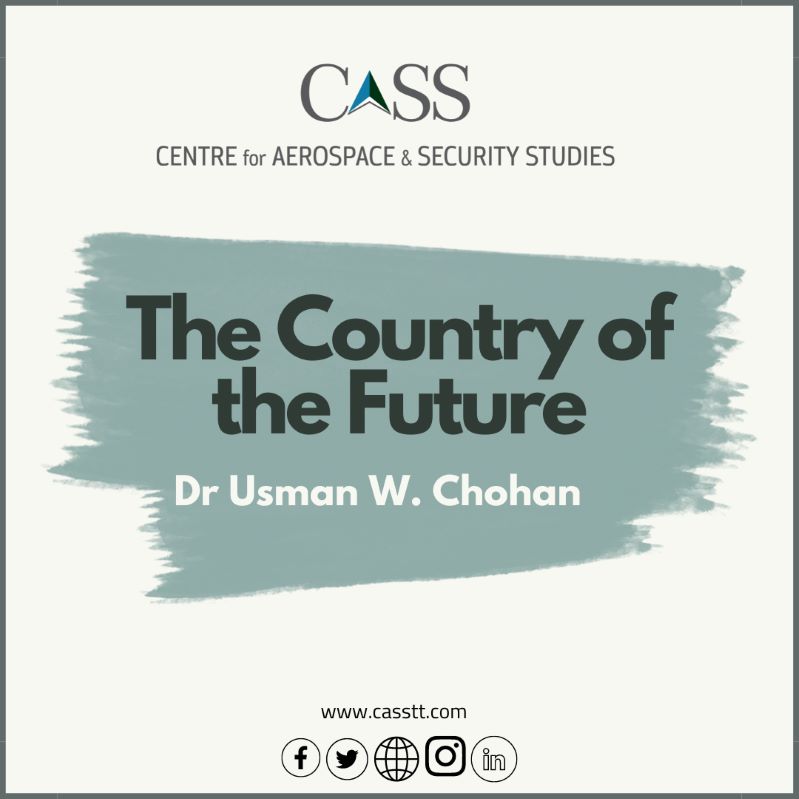Whenever the pundits herald the economic potential of “emerging markets”, their discourse often belies a sense of despondency that looms closely behind in the psyche and in the lived experience of citizens in the developing world.
The interplay between external exuberance and inner malaise is steeped in the confrontation of Third World societies against post-colonial realities of economic life: worsening inequality, material excesses, inflation, congestion, and degradations of both society and the environment.
Because of this dichotomy, the “emerging markets” have been characterized by hard swings in the business cycle: a decade of high growth here, another of stagnation there, only to bounce back momentarily, before slumping yet again.
This pattern of cyclicality is stark across the developing world, including in Pakistan. Over here, several years of CPEC-related exuberance were followed by a shock to the system and a 40% devaluation in early 2019; and yet Pakistan’s stock market was the world’s best performer for eight consecutive days this month!
Such rapid swings blur the lines between what is cyclical and what is structural in the economy’s deficiencies. For example, noting the most recent indicators of the State Bank of Pakistan (SBP), PM Imran Khan rejoiced that his administration had managed to reduce the country’s current account deficit to a $99 million net positive figure, the first time this had occurred in four years.
According to SBP data, the reduced deficit was attributable to a sharp decrease in imports, which fell from $19bn to $14.65bn, while exports increased more modestly from $7.9bn to $8.22bn. While much of this import reduction was on discretionary items, a valid concern has been raised about capital goods, in that they too might have been curtailed.
Reducing the imports of capital goods, which are used to generate further economic activity, often hamper longer-term economic activity and hence the growth rate of GDP. This caution aside, such figures are nonetheless a healthy indication of some payback for the initiation of difficult reforms, which have made the cost of living dearer for many ordinary Pakistanis.
Indeed, recent survey data from Ipsos Pakistan suggests that Pakistanis overall have become more pessimistic about their employment & consumption prospects, and so any indications of green shoots are welcome at this time.
Yet what is important now is to see these reforms to the end, executed in full and led to materialize in a sustainable form. This is particularly true for policies such as minimizing discretionary imports, growing the tax base, formalizing the economy, and increasing financial inclusion.
A bitter pill was swallowed to initiate economic belt-tightening, whether in discretionary imports, revenue collection, or public spending. And while there are very serious concerns about the ideology of austerity that IMF imposes from-on-high in Pakistan and elsewhere, there is often a sliver of truth in the economic deficiencies they detect.
Seeing the current reforms through to the end requires political will, because there is always the political temptation to ease off before reform programs are pursued to maturity. This is in fact what lies at the heart of Pakistan’s IMF-dependency: reforms are not properly concluded and so the causes fester without being addressed in a sustained fashion.
As such, any political break that impedes wholehearted and far-reaching reforms will result in future dependencies on the IMF and on external interventions. The antibiotics course must be administered until the end, so that it remedies structural issues rather than mere cyclical ones.
Of course, such problems of political will are by no means confined to Pakistan alone, but rather characterize developing countries as a cohort. Argentina, Brazil, Colombia, Nigeria, Indonesia, Panama, Haiti, Philippines, Congo, Egypt, Ecuador: a litany of emerging market names can be allow a pattern to be discerned – structural problems can and do persist, even across generations, while parties and personalities come and go.
There is a famously cynical quip that is oft-repeated in the bureaus of Sao Paolo: “Brazil is the country of the future… and it always will be,” hinting at the unrealized potential of the country in not having addressed the fundamentals of economic dysfunction and disenfranchisement on so many occasions.
The country of the future is one that can generate systemic patterns of economic activity that address financial inclusion, inequality, growth, sustainability, and dynamism. Otherwise, jumping from one international bailout to another, the countries of the Third World will transmit their cynicism across generations, knowing that they might be “a country of the future,” but resigning themselves to disillusion that they always will be.
The writer is the Director for Economics and National Affairs at the Centre for Aerospace and Security Studies (CASS). This article was first published in Daily NHT Newspaper. He can be reached at [email protected].





